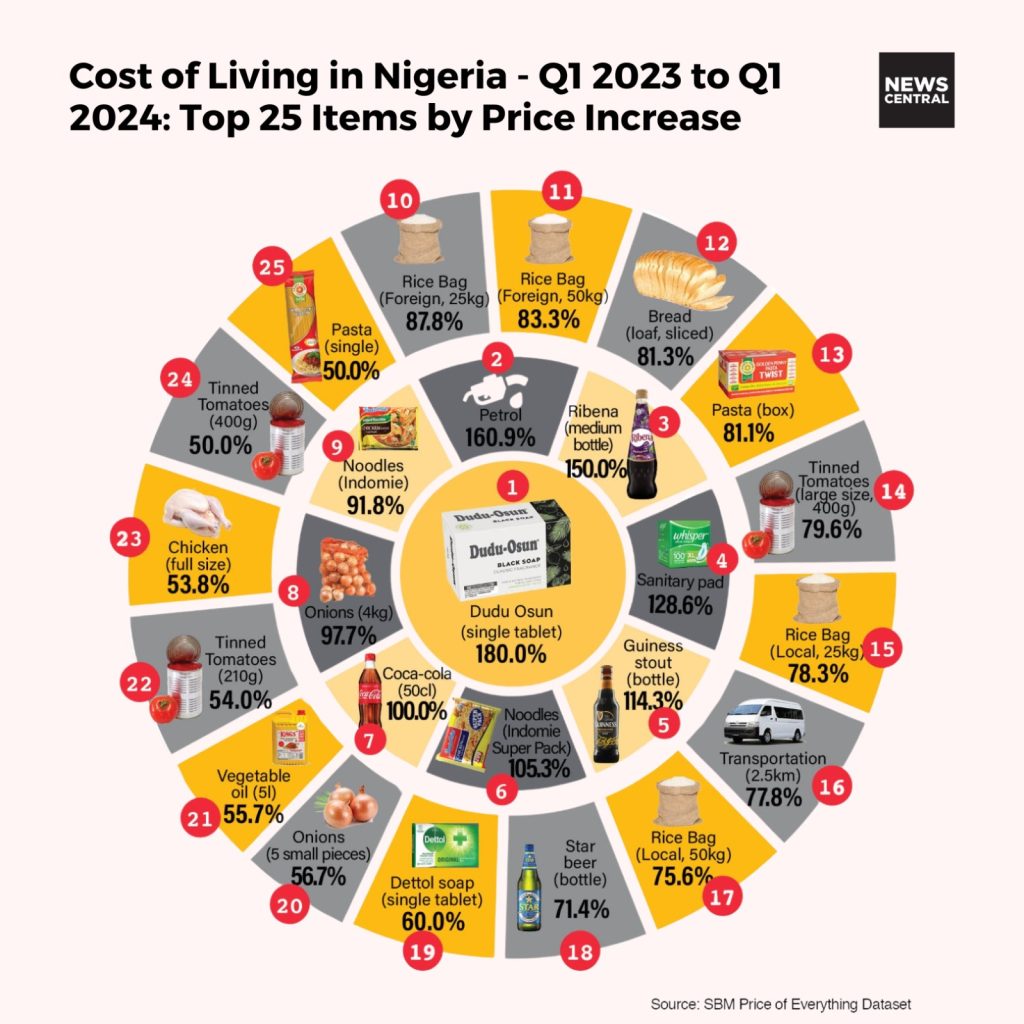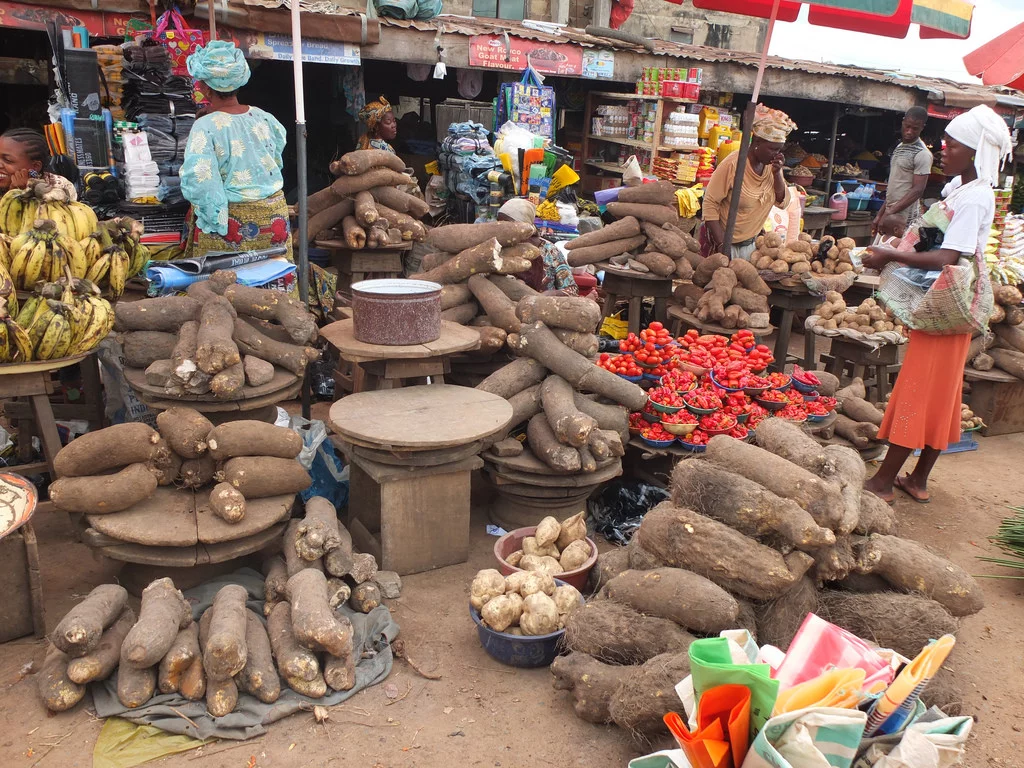As Nigeria grapples with an unprecedented economic challenge, the specter of inflation looms large, casting long shadows over its economic landscape and the daily lives of its citizens. Recent data from the SBM Intelligence report, “The Price of Everything,” paints a grim picture of a nation battling an inflation rate that has soared to a staggering 31.7 per cent as of February 2024, the highest since 1996. This alarming trend is symptomatic of deeper systemic issues that plague Africa’s largest economy.
The Crushing Burden of Necessity
The relentless rise in inflation bites hardest into the markets for everyday necessities. Items like petrol, soap, and food have seen staggering price increases. Dudu Osun soap, a household staple, and petrol now cost over 160 percent more, transforming essentials into luxuries for many Nigerians. The price of a simple loaf of bread has soared by 81 per cent, a consequence of both the naira’s devaluation and skyrocketing wheat import costs. These stark figures wound Nigerian society, stifling households and eroding consumer spending – a lifeline for economic growth.

The Data Tells a Stark Tale
SBM Intelligence’s analysis reveals that the top 25 most consumed products are largely food items, with prices increasing by an average of nearly 90 per cent. Staples like rice have seen devastating jumps—a 25kg bag previously costing ₦20,500 now demands ₦38,500, an 87.8 per cent increase. Such volatility underscores Nigeria’s precarious food security in the face of relentless inflation.
Curiously, amidst this crisis lies an unusual pocket of stability—the entertainment sector. Despite the turmoil, costs for cable TV and streaming services have remained relatively modest. Major providers like StarTimes and DSTV report annual price increases below 20 per cent. This offers a small but crucial respite for consumers, a welcome distraction from the economic tempest.
Roots of the Storm
Inflation’s surge is not merely a quirk of the market; it is a symptom of far-reaching systemic problems. Nigeria’s chronic infrastructure gaps, especially in power and transport, inflate business costs with brutal efficiency. The report exposes how hikes in petrol directly impact transport, with costs surging 77 per cent due to higher operational expenses.
Insecurity and unrest compound these woes. Frequent outbreaks of violence cripple supply chains and disrupt agricultural production—sectors vital to Nigeria’s economy—laying the groundwork for even greater inflationary pressure.

Charting a New Course
Nigeria’s path forward depends on a delicate dance between domestic policy and the whims of the global economy. The Central Bank of Nigeria’s monetary strategies—focused on managing liquidity and stabilising the naira—will be paramount in battling inflation. Yet, the structural nature of this crisis, stoked by devaluation and infrastructural woes, demands a holistic approach. Robust infrastructural investments, bolstered security, and policies prioritising food production and distribution are essential.
Nigeria’s economic climate demands both resilience and a reimagining of policy. Though stable entertainment prices offer a glimmer of solace, the nation’s well-being hinges on confronting the runaway inflation. To calm these turbulent economic waters, strategic, coordinated responses are crucial, paving the way for stability and a foundation for lasting growth. Nigeria’s path to recovery may be paved with challenges, but its success will depend on a fundamental restructuring of its economic foundations.


